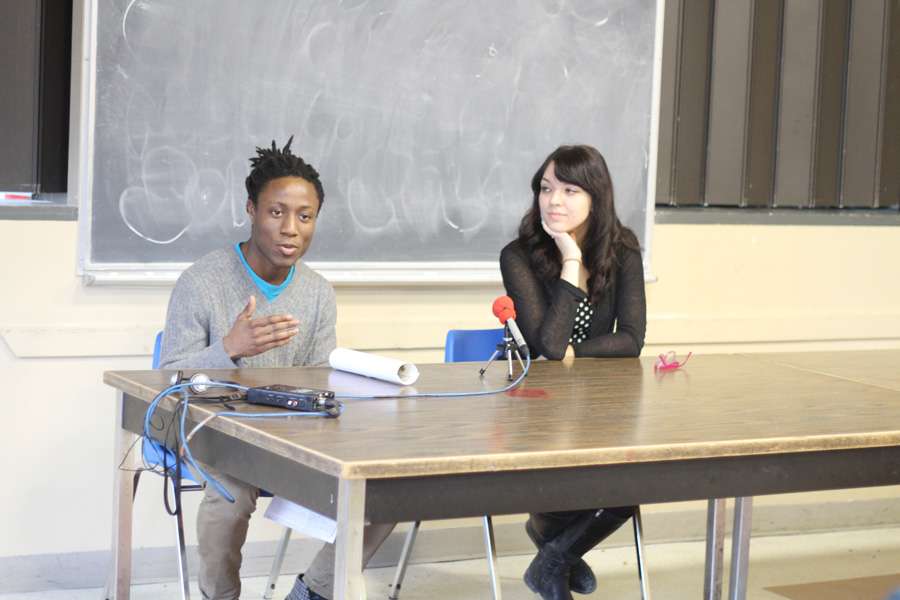Building relationships between international students, migrants, and Indigenous peoples was the focus of a panel discussion hosted by the Social Equity and Diversity Education Office (SEDE) on Thursday.
According to Juhi Sujan, administrative coordinator at SEDE, the event was coordinated to address an unique subject matter.
“In envisioning the event, we considered how we could best incorporate voices from the community and how we could prioritize the perspectives of Indigenous people and migrants who have lived the experience of building relationships between these two groups,” Sujan said.
The event began with the screening of Mohawk Girls, a short film on the cultural challenges faced by three Mohawk teenagers during their critical transition between high school and university.
Following the film, two speakers—Tiffany Harrington a member of the Indigenous Student Alliance, and Radney Jean-Claude, a member the Rapprochement des Spiritualités Indigènes-Haïtiens collective—led a panel discussion on relations between migrants and indigenous groups.
Harrington, who spent the past semester on an exchange in Argentina, spoke about her experience abroad and the treatment of Indigenous peoples there.
“[In] the community I was living in, the colonial name they were given was ‘Toba,’ and ‘Toba’ is a derogatory term which means the ‘front of your head,’” Harrington said. “A lot of the names that the Indigenous people have here are also not the names of the people themselves, but names that were given to them by the enemies when there was first contact.”
Harrington noted that her experience abroad reflected the importance of engaging with Indigenous communities.
“That’s definitely a unique opportunity when you move to a new place, or you’re visiting a new area—you have available resources to take advantage of and [should] always [be] respectful,” she said.
Jean-Claude, a former McGill student, emphasized the importance of migrants engaging with the Indigenous community in the Montreal area.
“I think it’s really important to have [these events], because when you come to a new environment, it’s good to know their history,” Jean-Claude said. “It helps create a certain sense of belonging in the long run [….] As a newcomer, it’s important to bridge and to create bonds with people from Indigenous communities.”
The event ended with a session where audience members asked the panelists questions about the relationship between immigrants and Indigenous peoples, such as how to become more involved in the community.
“A great way on campus is the First Peoples’ House, right here on Peel,” Harrington said. “And also off-campus, there are a lot of opportunities—lots of things [for which] you can volunteer.”
Reception of the event was positive, with attendees like Emily Boytinck, U2 Science, praising its original content.
“It’s a topic that isn’t usually covered,” she said. “It’s wonderful to see that immigrants are taking interest in Indigenous communities [….] And I think that’s just really inspiring.”
The panel was part of International Student Services’ (ISS) first i-Week—a series of events coordinated by individual organizations such as student clubs, McGill’s Career Planning Service (CaPS), and advising services.
Caroline Guay, International Student Advisor at ISS, explained that i-Week was established to promote a sense of community within McGill.
“We were looking for ways to create a campus-wide inclusive event that would bring everyone together,” Guay said. “ It’s more than just a display of international culture. It’s a chance to […] have a dialogue that is community-wide and inclusive and that gets everyone involved.”








